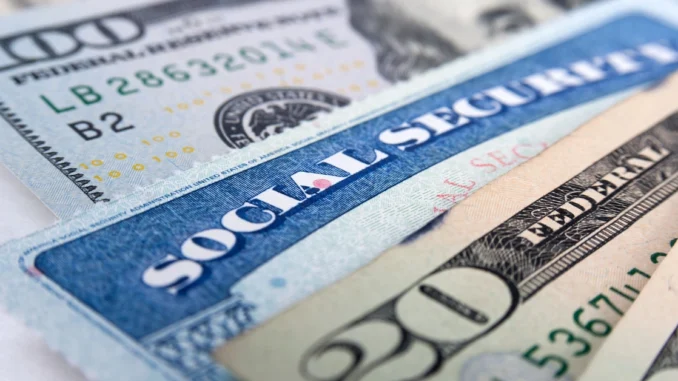
Social Security is a vital financial safety net for millions of Americans. By 2024, it is projected that 64 million individuals in the United States will rely on Social Security for their economic support. Despite its widespread importance, 3.3% of older adults will never receive Social Security benefits. But why is that the case? This article explores the reasons behind this and how it impacts those who are excluded from the program.
Table of Contents
Why Do Some People Never Receive Social Security Benefits?
Social Security payments vary, ranging from as little as $1,000 to the maximum of $4,500. So, why are some people excluded from receiving these benefits? These individuals, often referred to as “never beneficiaries,” are older adults who, despite being of retirement age, do not qualify for Social Security payments for various reasons:
Late Migrants Who Didn’t Accumulate Enough Work Credits
One key reason people miss out on Social Security benefits is due to their arrival in the U.S. after age 50. If they spent a significant portion of their working years outside the United States, they may not have accumulated the necessary credits to qualify for payments. This is particularly common among immigrants who settle in the U.S. later in life.
Intermittent Employment or Lack of Stable Work History
People with unstable or part-time work histories may also fail to meet the Social Security eligibility criteria. If they didn’t contribute consistently to the system or didn’t earn enough to accumulate the required number of work credits, they may not qualify for benefits.
Exemption for Some Government Employees
Some government employees are exempt from the Social Security system. These individuals may receive retirement benefits from other pension systems, typically state or local government-managed, which means they do not contribute to Social Security and, as a result, are ineligible for SSA payments.
Application Mistakes and Errors
While it may seem straightforward, the application process for Social Security is often complex, and many retirees make costly mistakes. In fact, thousands of Americans lose their benefits each year due to errors made during the application process. These mistakes can result in significant financial losses over time, with some retirees missing out on up to $100,000 in benefits.
How Do “Never Beneficiaries” Manage Without Social Security?
According to data from the Social Security Administration (SSA), more than half (54.3%) of the “never beneficiaries” live below the poverty line. In comparison, only 5.8% of individuals who receive Social Security payments face similar financial hardship.
Without the financial support from Social Security, many retirees struggle to meet their basic needs, such as food, housing, and medical care. This highlights the critical role Social Security plays not only as a source of income but as a shield against poverty for the elderly.
Tips to Avoid Being Left Out of Social Security Benefits
While there are factors beyond your control, there are steps you can take to ensure you don’t end up among the “never beneficiaries” of Social Security:
Accumulate at Least 40 Work Credits
To qualify for Social Security benefits, you need to accumulate a minimum of 40 work credits, which generally takes about 10 years of work. If you’re nearing retirement age and haven’t yet met this threshold, it may be worth considering extending your working years to ensure you qualify for benefits.
Carefully Review Your Application
The Social Security application process can be complex, and even minor errors can lead to disqualification or delayed benefits. It’s important to carefully review your application before submitting it. If you find the process overwhelming, consider seeking guidance from a financial advisor or using the resources available on the official SSA website to avoid costly mistakes.
Consider Delaying Your Retirement
Did you know that delaying your retirement could result in higher monthly payments? By postponing retirement, you could receive up to an additional 8% of your payment. However, it’s important to think carefully before deciding to work past the typical retirement age, as not everyone is able to continue working until they are 70.
Plan Ahead for Retirement
It’s never too early to plan for retirement. If you’re still a few years away from retirement age, take the time to review your work history, financial situation, and Social Security eligibility. Planning ahead can help ensure that you are not left out of the program when the time comes. Time flies, and the sooner you start, the better prepared you’ll be.
Over $5,000 in Social Security Payments Arrive January for Pre-1997 Beneficiaries
US Government Announces $500 Stimulus Checks for Eligible Migrants: How to Qualify
New York Becomes First State to Mandate Paid Medical Leave for Pregnant Workers
End-of-Year Relief: Are You Eligible for the $800 Stimulus Check?
Conclusion
Social Security is a crucial source of financial security for millions of Americans, but unfortunately, some individuals never qualify for the program. By understanding the reasons behind this and following the steps outlined above, you can avoid being left out of this important financial safety net and ensure a more secure retirement.
Leave a Reply